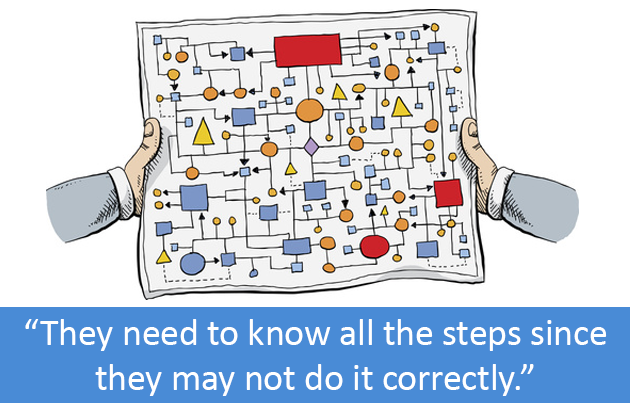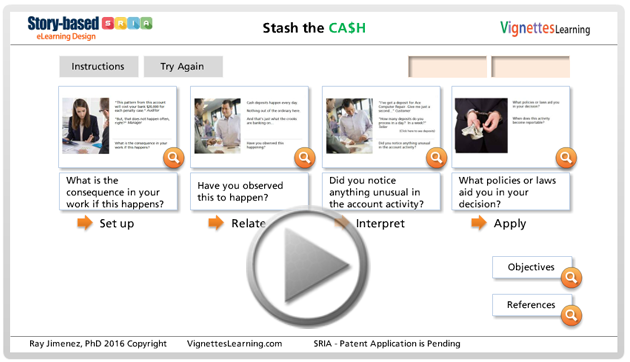Are we still capable of human wisdom? “But of course!” Most of us will probably give such an emphatic answer. But scientists fear that in an increasingly digital environment, our capacity for “human wisdom—empathy, compassion, altruism, tolerance and emotional stability”…
Tag: eLearning
What We Learned from the United Airlines Incident – Tip #130
Sad things happened to some people, a United Airline passenger and its employees and management. This breaks my heart and makes me sad. Trainers and leaders are supposedly guardians of right or wrong behaviors. We are messengers and caretakers of…
Why Does Microlearning Mean Better Learning? – Tip #129
Have you ever panicked or felt disconnected because you misplaced your mobile phone? Research shows that 8 out of 10 adult smartphone users “reach for their phone within 15 minutes of waking”. But as we get connected and stay connected with the…
Be a Persuasive Storyteller in Social Media – Tip #128
Social Media and the Leader Results of a survey showed that 75% of employees perceived that social media presence improves the ability to lead. Tu and McIsaac defined social presence as “the degree of feeling, perception, and reaction to being connected by…
3 Strategies for Sure-Fire Microlearning Success – Tip #127
In my interactions with instructional designers, one thing always stood out: They have a tendency to provide a lot of content. Their mindset is: “Learners need to know all the steps since they may not do it correctly.” However, my…
Why is Microlearning Futile? How to Fix It – Tip #126
This week I had an exhilarating conversation with a Caltech professor at the Athenaeum Caltech Faculty Club. The professor is responsible for the facilities where robotic experiments are conducted. He said, “many of my graduate research students stand back and…
Proof of Disruptions – Tip #125
When you hear the word “disruption,” what do you think about? Most would probably equate it with something that temporarily derails from achieving an objective. For instance, a car breakdown on your way to work. Disruption usually has a negative denotation.…
Are Instructional Designers Incapable of Microlearning Design? – Tip #124
I have asked this serious question in multiple ways. Why is it difficult for instructional designers to think and do Microlearning? I define Microlearning closely to that of Theo Hug’s description: Microlearning is: 1 Low effort 2 Fast 3 Easy…
Micro-Instant Learning – Tip #123
Instant learning suggests a sense of immediacy and urgency. It means understanding on-demand information and developing skills to perform a specific task precisely at the moment of need. The increasing complexity of jobs and the accelerating advances in technology necessitate…
Learning Objectives are Dead Unless You Do CPR – Tip #122
Learning objectives are good as basis for defining what we want to impart to learners. Unfortunately, when we stop there, learners find the learning objectives senseless and as a result, disengage and/or skip the objectives altogether. A Linear Structure Kills…
Stories of Real-Life Fiascos and Blunders Motivate Learners – Tip #121
Have you ever tried teaching a new employee how to use the software your company currently uses? Did you find it easy to teach or were there challenges you encountered? Now, think about training employees about your branding or corporate…
It’s Really That Simple – Steps in Story Learning Design – Try the Live Exercise – Tip #120
Do you want to know how simple it is to apply the step-by-step process for creating a Story-Based Lesson? Fear not. There is actually a logic to the process, even if the outcome can be emotional and provocative. Play this…
3 Story Lesson Starters That Never Fail – Tip #119
Every day we tell and hear stories about ourselves, about people we love (or don’t love), and about many other things in our world. Why do some stories stick to our minds while others are like wisps of mist that…
Content That Lives Within a Story Lasts Forever – Tip #118
Stories can touch our whole being—our thoughts, imagination, emotions, and spirit. Emotionally gripping stories have a way of sticking to our memories for a long, long time. Jennifer Aaker, a professor of marketing at the Stanford Graduate School of Business,…
5 Story Arguments that Compel Learners to Pay Attention – Tip #117
Learning is like watching someone else’s story. Observe what happens when you listen to a story from your parents, spouse or loved one, kids, bosses, or even a homeless person on the street. Did you notice how there’s always an…















